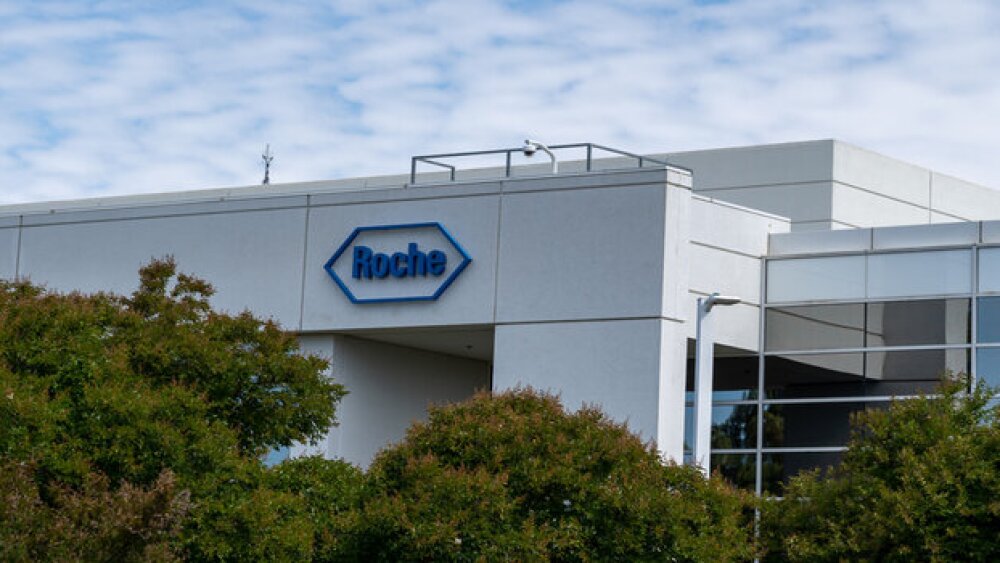MOUNTAIN VIEW, Calif., Sept. 15, 2011 /PRNewswire/ -- ChemoCentryx, Inc. today announced that the Company's novel, orally active CCR2 antagonist, CCX140-B, demonstrated an excellent safety profile and exhibited clear signs of biological and clinical effect in a Phase II study in patients with type 2 diabetes on stable doses of metformin. While demonstrating safety and tolerability, a statistically significant decrease in hemoglobin A1c (HbA1c) relative to placebo and a dose-dependent lowering of fasting plasma glucose were shown following 28 days of treatment with CCX140-B. Additionally, the Company reported that CCR2 antagonism significantly improves kidney function and hyperglycemia in preclinical models of type 2 diabetes. These combined results indicate that CCX140-B may be effective in the treatment of renal disease resulting from complications associated with diabetes. CCX140-B is in position to enter Phase II clinical development for the treatment of diabetic nephropathy in the fourth quarter of 2011.
These data were presented this week in Lisbon, Portugal at the 47th European Association for the Study of Diabetes (EASD) in the form of two presentations entitled "Safety and Efficacy of Oral Chemokine Receptor 2 Antagonist CCX140-B in a Phase 2 Type 2 Diabetes Study," and "Inhibition of the CCR2 Chemokine Receptor in Diabetic Mice Results in a Rapid and Robust Improvement of Hyperglycemia."
"Diabetes is the leading cause of renal failure in the U.S., a condition that is increasing in prevalence on an annual basis," stated Thomas J. Schall, Ph.D., President and Chief Executive Officer of ChemoCentryx. "The global health and economic burden of end stage renal disease is vast and currently available therapies at best slow progression of renal disease. We believe that CCX140-B represents a first-in-class drug candidate with the potential to treat nephropathy in the context of diabetes by stopping its advancement -- and as such could change the treatment landscape entirely."
Phase II Results and Trial Design
Results showed that daily treatment with CCX140-B was effective, safe and well tolerated. Additionally, treatment with CCX140-B showed a dose-dependent decrease in fasting glucose through week 4. A significant decrease in HbA1c was observed after only 4 weeks of daily treatment of CCX140-B (10 mg) compared to placebo (p = 0.045). No detrimental effects were observed on plasma MCP-1 or blood monocyte levels, and once daily oral CCX140-B provided excellent plasma coverage.
This was a multinational, randomized, double-blind, placebo and active-controlled clinical trial in 159 patients with type 2 diabetes on stable doses of metformin. HbA1c was 6.5 to 10% and fasting plasma glucose 135 to 270 mg/dL at study entry. Randomized subjects received double-blind placebo QD, 5 mg CCX140-B QD, 10 mg CCX140-B QD, or open label pioglitazone hydrochloride 30 mg for 4 weeks. The average age was 59 years and 64% of the participants were male. Mean body mass index was 32 kg/m2 and diabetes duration was 5.8 years (median).
Preclinical Results and Design
CCR2 inhibition was studied in two models of type 2 diabetes: diet-induced obese mice and db/db mice. Treatment with the CCR2 antagonist significantly improved multiple metabolic/renal parameters, including hyperglycemia, insulin sensitivity, serum adiponectin, glucosuria, albuminuria and serum markers (creatine and BUN) of renal function. The metabolic improvements correlated with a significant reduction in adipose tissue macrophage numbers.
About CCX140-B
CCX140-B is chemically distinct from all other known antagonists of CCR2 and works by blocking the infiltration and activation of certain populations of monocyte/macrophages and other cells bearing CCR2 that occur during inflammation and thus is designed to provide selective treatment of the disease without compromising other immune functions.
About ChemoCentryx
ChemoCentryx, Inc. is a clinical-stage biopharmaceutical company focused on discovering, developing and commercializing orally-administered therapeutics that target the chemokine and chemoattractant systems in order to treat autoimmune diseases, inflammatory disorders and cancer. The chemokine system is a biological network that regulates inflammation via a collection of secreted chemokine molecules, or ligands, and their specific cell surface receptors. Based on its proprietary drug discovery and drug development platform, ChemoCentryx has generated multiple clinical and preclinical-stage programs, each targeting distinct chemokine and chemoattractant receptors with different small molecule compounds. ChemoCentryx's lead compound, CCX282-B (Traficet-EN, now designated GSK1605786, also known as GSK'786), a specific CCR9 antagonist, completed a multi-national clinical trial, called PROTECT-1, in patients with moderate-to-severe Crohn's disease, where it demonstrated the ability to induce a clinical response and to maintain clinical remission, and is now in Phase III clinical development. ChemoCentryx's lead independent drug candidate, CCX140-B, a CCR2 antagonist, has been shown to be safe and well tolerated while demonstrating clinical activity on glycemic indices in a Phase II clinical trial in type 2 diabetes. CCX140-B is poised to enter Phase II clinical development for the treatment of diabetic nephropathy. Other clinical programs include CCX354, a CCR1 antagonist which recently completed a Phase II clinical trial for the treatment of rheumatoid arthritis; CCX168, a C5aR antagonist, that completed Phase I clinical development and is anticipated to enter Phase II clinical trials in 2011; and CCX832, a ChemR23 antagonist in Phase I clinical development. ChemoCentryx also has several programs in advanced preclinical development. ChemoCentryx is privately held. For more information, please refer to www.chemocentryx.com.
Certain statements in this press release may constitute "forward-looking statements". These statements are made on the basis of current expectations, forecasts and assumptions that involve risks and uncertainties, including, but not limited to, economic, competitive, governmental and technological factors outside of our control, that may cause our business, strategy or actual results to differ materially from those expressed or implied. We do not intend, and undertake no obligation, to update any forward-looking statements, whether as a result of new information, future events or otherwise.
SOURCE ChemoCentryx, Inc.




